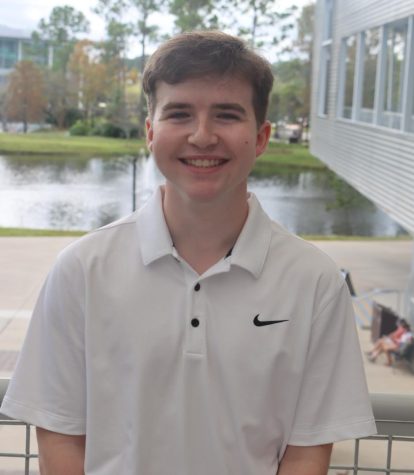Featured image: AP Photo/Sidiqullah Khan
Following the American invasion in 2001, the war in Afghanistan has been a seemingly endless conflict. With troops being pulled, things have hit the fan as the Taliban jumped on the opportunity and took over.
While this conflict has taken place over decades, President Biden announced in April 2021 that troops would be fully withdrawn from Afghanistan by September 11, 2021. This date is particularly significant, being the 20th anniversary of the attacks of 9/11. Just months prior, things had fallen apart at the seams.
Bob Buehn, Director of the UNF Military Veterans Resource Center, alluded to the significance of the timing.
“It certainly makes it a lot more poignant and puts more focus on it when you think about it being 20 years since 9/11. [There’s] people like that who were involved in it and went there to make sure it never happened again.”

AP Photo/Zabi Karimi
But who are the Taliban, and what role are they playing in the current conflict? Summarizing the Taliban into one simple definition is challenging, but the group is often viewed as an extremist political and military force in the region. To say that they have a checkered past would be quite an understatement. The controversial history of the organization is highlighted by the suppression of female rights, something they are now saying they will respect. But with such a poor track record, why should they be trusted?
One may wonder how things went so poorly, so quickly. Since intervening in the nation in 2001, the United States has trained and developed Afghan troops, who fled for cover at the sight of Taliban advances in recent days. While the US is receiving loads of blame for the issue, the desertion of Afghan forces certainly didn’t help.
Nancy Soderberg, UNF Director of Public Service Leadership and former Deputy National Security Adviser, alluded to this in an interview with Spinnaker.
“[The United States] spent 20 years investing in this country and training them. If [Afghan troops] don’t have the will to fight, that’s not our fault,” she said. “The bigger question is what was the rush to leave?”
President Biden and his advisers were well aware of the criticism coming their way, which was only furthered by days of silence prior to Biden’s statement on Monday. Many have presumed that the administration wasn’t ready for the situation that has unfolded. Soderberg also addressed the likely confusion in the upper echelons of Washington DC.
“I think it’s pretty clear the [Biden] administration didn’t expect this to happen and was scrambling. The Monday morning quarterbacking- there will be books written on what went wrong here. ‘We don’t know yet’ is the short answer. Was it a failure of intelligence? Was it an unwillingness to listen to the intelligence? What went wrong is really hard to guess this quickly.”
While there are obvious physical and geopolitical ramifications resulting from recent events, there will be no shortage of emotional damage as well. For those who served in Afghanistan, they may feel all their hard work and sacrifice has gone to waste.
There is an even deeper toll for those who lost loved ones serving in the region. Bob Buehn, who served as a US Navy pilot, feels that it is unfortunate, but that the sacrifice should not be viewed as worthless.
“From the talking that I’ve done, there’s a wide range of emotions… I personally don’t think they should feel like their time was wasted, but I think some feel that way. I can understand why somebody would feel that way since we’re back 20 years later to the same situation that it was when we went there.”

AP Photo/Evan Vucci
Afghanistan veterans at home aren’t inherently immune to this grief, either. It’s difficult to see something you poured so much effort and sacrifice into falling apart in front of your eyes. While the withdrawal of troops is something many wanted to see, the ensuing chaos makes it feel like the whole operation was a failure for many. The lasting mental and emotional effects of this conflict and the current happenings are something that concerns Buehn.
“It is hard. I think people who served there, especially on the ground next to Afghans who maybe now are not going to be able to get out, I think it’s going to take a while to get over it,” he expressed, “I’m worried that those who have been struggling with things like PTSD already, that this is not going to make it any better.”
Yet, there remains one big question on the table: what’s next? President Biden stood firm in his decision, stating “I’m now the fourth American President to preside over the war in Afghanistan, two Democrats and two Republicans, [and] I will not pass this responsibility on to a fifth President.”
Biden acknowledged that there will be criticism, but doubled down on his firm stance nonetheless. It’s also important to understand that isn’t necessarily a partisan issue, as both parties have made efforts to remove US troops from Afghanistan, as Biden alluded to.
Scenes of panic and chaos played out at the airport in Kabul as crowds of people desperate to escape Afghanistan rushed onto the tarmac.
Some clung to the sides of planes, even as one taxied down the runway, in a bid to flee the Taliban.https://t.co/pAgoGW7tos pic.twitter.com/4YGQd2iEzk
— The New York Times (@nytimes) August 16, 2021
For now, the main goals for American operations in Afghanistan revolve around the evacuation of American diplomats and Afghan civilians. The world was gripped by the conflict after seeing devastating images of civilians crowding a runway and even attempting to hold onto American planes during liftoff. Securing access to runways in Kabul is critical to preventing further carnage in the area.
Soderberg addressed what needs to be prioritized by the American government.
“The immediate need right now is to get Americans and our allies out. We not only worked with Pentagon contractors and translators but there’s the whole development agency that’s hired many development officials… I think the question is ‘what’s next here?’ I don’t see us going back in, so what kind of leverage do we have in this heartbreaking collage?”
While grim, the volatile situation continues to progress by the hour. It’s hard to predict what will happen next, and what the lasting effects will be. We can only hope that the Taliban will uphold their end of the bargain: respecting the rights of the remaining civilians, specifically the vulnerable female population that they have infringed on previously.
Spinnaker will continue to update this story as more information is released.
___
For more information or news tips, or if you see an error in this story or have any compliments or concerns, contact editor@unfspinnaker.com.
















